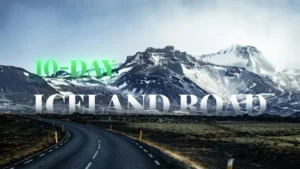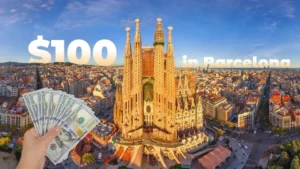Have you ever seen the aurora? It moves like a living thing across the night sky — glowing, shifting, and painting the heavens with colors that seem almost unreal. It’s one of the most breathtaking natural wonders on Earth, and there’s no better place to see it than in Iceland.
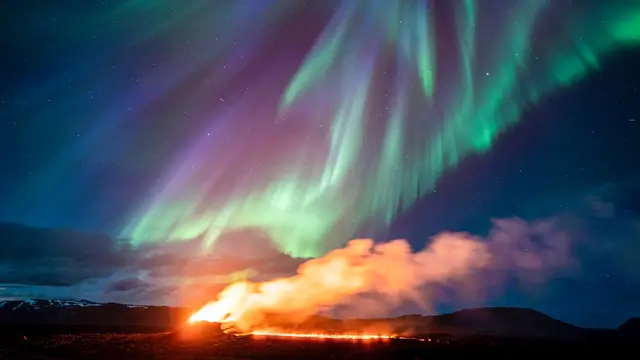
Photo: The Associated Press
But beyond the northern lights, what makes Iceland a place that travelers keep returning to again and again?
In this article, we’ll explore Iceland’s stunning landscapes, its unique culture, and how you can immerse yourself in this extraordinary country — not just as a tourist, but as someone who truly experiences its magic through a campervan road trip or as a digital nomad.
Top Natural Attractions in Iceland You Shouldn’t Miss
Iceland’s landscapes will make you stop — not just because they are beautiful, but because they feel like they belong to another world.
Here, fire and ice coexist. Volcanoes sleep under glaciers. Rivers carve through black sand beaches. And waterfalls seem to fall from the sky.
Some of the most amazing natural sights include:
Diamond Beach – Icebergs float on black sand like scattered pieces of glass. Lying right by a beautiful glacier lagoon and thousand-year-old icebergs, this is a place you should definitely add to your bucket list.
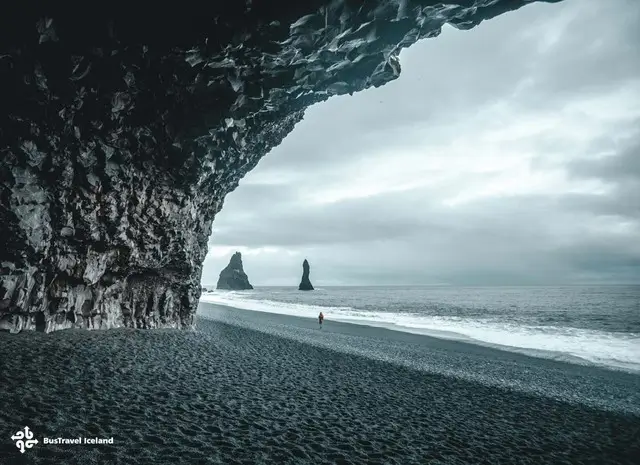
Jökulsárlón Glacier Lagoon – A growing lake filled with floating ice chunks from Vatnajökull Glacier. It’s a constantly changing landscape, reminding us of the slow but powerful movement of nature.
Gullfoss – One of the most powerful waterfalls in the country, where the Hvítá River plunges into a canyon with thunderous force. Its raw energy and dramatic setting make it a symbol of Iceland’s wild spirit.
Vatnajökull – The largest glacier in Europe, covering several active volcanoes beneath its icy surface. It’s a dynamic ecosystem where ice and fire shape the land.
These places don’t need filters to look stunning. They’re already that way.
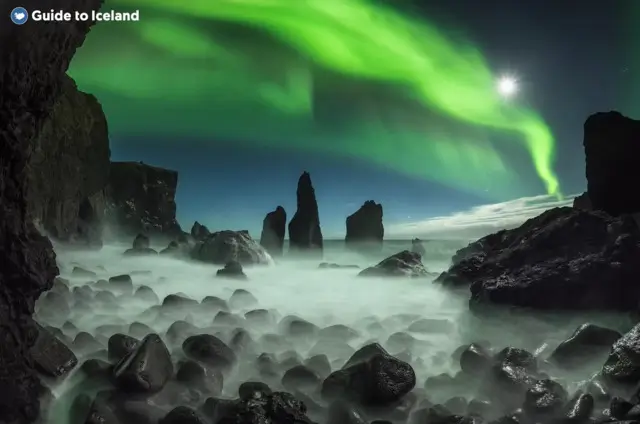
Famous Movie Locations in Iceland for Film Lovers
Iceland’s landscapes are so otherworldly, you’ve probably seen them on the big screen — even if you didn’t realize it.
Its dramatic terrain has made it a favorite among filmmakers who want to show alien worlds, ancient myths, or post-apocalyptic settings.
Popular Films Shot in Iceland
Game of Thrones – The icy lands beyond the Wall were filmed in real glaciers and lava fields.
Interstellar – The frozen planet scenes were shot on the black sands.
James Bond: Die Another Day – The icy opening scenes were shot on Vatnajökull glacier.
If you’re a movie fan, visiting Iceland is like walking onto a real-life set.
What It’s Like Living in Iceland: Local Life and Culture
The country’s population is just over 375,000 — making it one of the least densely populated countries in Europe. But life here isn’t lonely. It’s peaceful and reflective.
A Culture of Stories, Myths, and Books
Icelanders love stories — both real and imagined.
Many Icelanders believe in elves, trolls, and hidden people. Some roads have even been rerouted to avoid disturbing “elf homes.”
During the holiday season, books flood the nation in a tradition called Jólabókaflóð, where families exchange and read books on Christmas Eve.
Libraries are full of art, books, and history, not just quiet reading rooms.
In Iceland, culture isn’t loud or flashy. It’s thoughtful, creative, and often a little strange (in an interesting way).
Iceland Road Trip Guide: Campervan Tips and Driving Routes
Want to truly experience the stunning places and explore Iceland on your own terms? Then road-tripping is the way to go.
The famous Ring Road loops trip is a road trip renowned for its variety of scenery, high plateaus, mountain passes, deep fjords, and many of Iceland’s most iconic sites.
You can drive it in 7–10 days, or take your time and stay longer in the places that speak to you.
Choosing Your Ride: Campervan or Rental Car?
Campervan: Perfect for travelers who want flexibility. You can cook, sleep, and drive all in one vehicle.
4×4 Rental Car: Better for shorter trips or if you prefer to stay in guesthouses or hotels.
What to Know Before You Go
Check the official road conditions website, road.is, before each day of travel.
Weather can change quickly — always be prepared for rain, wind, or snow.
Rent a GPS — not all roads are clearly marked.
Sleep Under the Stars: Iceland Hotels That Mix Style, Comfort, and Nature
If you’re not planning to drive a campervan, don’t worry. Iceland has a growing selection of boutique hotels, countryside lodges, and eco-friendly guesthouses. Some offer glass-roofed rooms for stargazing, geothermal spa suites, or even glacier views. Platforms like Airbnb and Booking.com feature a wide range of options—from budget cabins to luxurious yet affordable hotels that don’t break your budget. These well-designed stays often include local touches like Icelandic wool blankets, organic breakfasts, and hot spring access. Many accommodations come with fast Wi-Fi, making them suitable for short-term remote work as well.
Remote Work in Iceland: Why Digital Nomads Are Moving North
Iceland is becoming more than just a bucket-list destination. After days spent hiking across lava fields or relaxing in a geothermal pool, many travelers start asking themselves: what if I stayed longer? It’s not just the scenery that lingers—it’s the lifestyle.
Quiet towns, clean air, low crime, and strong public services make Iceland not only safe but deeply livable. And for remote workers, it checks nearly every box. With reliable broadband access, remote work visas, and cozy cafés—even near volcanoes—you can easily host video calls while soaking in inspiration.
The environment encourages a slower, clearer, and more intentional lifestyle, which is perfect for creative and remote work.
While it’s not the cheapest country to live in, many remote workers say the experience is worth it.
In The End
Iceland travel is an unforgettable experience.
It’s a place where nature speaks in dramatic landscapes, where culture thrives in quiet corners, and where life feels a little more connected to the world around us.
Whether you’re planning a visit, a road trip, or even a longer stay, Iceland offers something rare: a chance to slow down, look up, and remember how beautiful the world can be.
Frequently Asked Questions About Traveling in Iceland
Q: Is it safe to drive in Iceland?
A: Yes, but you need to be prepared. Weather can change quickly, especially in winter. Always check road conditions and drive carefully on gravel roads.
Q: Can I see the Northern Lights all year?
A: The best time is between October and March, when the nights are long and dark. During summer, the Midnight Sun makes it difficult to see them.
Q: Do I need a special visa to work remotely in Iceland?
A: Iceland is part of the Schengen Area. Citizens from many countries can stay for up to 90 days without a visa. For longer stays, you may need to apply for a residence permit.
Q: What’s the food like?
A: Traditional dishes include lamb, fermented shark and skyr yoghurt, fish, and rye bread. Supermarkets and small restaurants offer a mix of local and international food.



